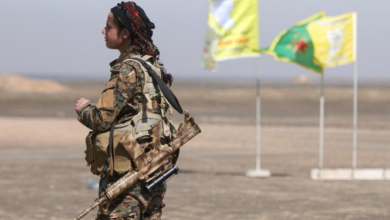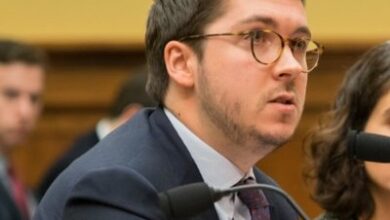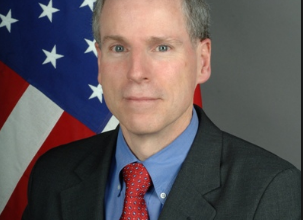
Don’t Respond to Refugees with Fear and Bigotry
On November 21, after some United States governors announced that they didn’t want to accept Syrian refugees writes Gerry Simpson, the Antiochian Orthodox Christian Archdiocese of North America called on Americans “not [to] be guided by fear or bigotry, but … work to heal the wounds of the injured, clothe the naked and feed the poor.”
The authors—whose Archdiocese traces its roots back to the first century city of Antioch, which gave birth to the very notion of “Christians”—could not have chosen a more appropriate statement.
I was in modern day Antioch (now Antakya) that day talking with refugees. The city, 20 kilometers from the Syrian border, is the first transportation hub Syrians reach in Turkey as they try to escape the horrors of war, heal their wounds, and feed their children.
After four years of carnage in Syria, Turkey officially hosts almost 2.2 million Syrian refugees at a cost of almost US$2 billion a year so you’d expect refugees to breathe a sigh of relief as they reach Turkey’s border. But now Turkey’s border guards are adding to their suffering.
Hungry and exhausted after fleeing airstrikes in Aleppo and Idlib and arduous journeys to reach the border, dozens of Syrians—many cradling their traumatised children—described how Turkey has quietly closed the border, forcing them to take 12-hour hikes at night with echoing gunfire on smuggling routes to dodge Turkish border guards.
One after another, they described how men, women, terrified children, the elderly, the sick and the injured were forced to scramble up and down steep terrain, some creating makeshift ropes from women’s veils to help pull up the weakest. The guards intercepted many of them anyway, in some cases beating them, and pushed them and hundreds of others back into Syria.
Some distraught parents told me they were separated from their children as gunfire caused people to scatter. A few elderly people had fallen down steep inclines, killing one man.
Turkey closed its last two official border crossings with Syria in March, giving no official explanation, and reinforced its border patrols in late July after an attack in the Turkish border town of Suruç. Knowledgeable sources say the crossing point near Antakya is the last place significant numbers of Syrians can still cross with smugglers.
There is no question that Turkey deserves credit and generous support for hosting so many Syrians and that it has a right to closely patrol its borders. But driving refugees into the hands of smugglers adds to the misery of those fleeing war and increases the likelihood that people who are security threats will make it to Turkey and beyond.
What’s more, international law says Turkey cannot return anyone to a place where they face a real risk of persecution, torture, or inhuman and degrading treatment or punishment. Pushing Syrians back at the border is illegal.
But changing Turkey’s mind is directly related to European Union policy. Faced with record numbers of Syrians reaching Greece by boat this year, on November 29 the EU sealed a new migration deal with Turkey to “prevent travel to Turkey and the EU.” The related action plan refers to “strengthen[ed] cooperation to prevent irregular migration flows to the EU.”
The deal carries serious risks. It may encourage further pushbacks of desperate refugees – not “irregular migrants” — at the Syrian border and police abuses to prevent onward movement to the EU, blocking protection for Syrians and other refugees.
EU money to support Turkey’s refugee response is crucial, but only on the condition that Turkey reopens its border to Syrian asylum seekers, and that Turkey’s northern border controls do not deny people access to EU asylum.
Most important, the EU should lead by example and help Jordan, Lebanon and Turkey—all buckling under massive refugee numbers—by making sure people can claim asylum at Turkey’s land borders with Greece and Bulgaria and by increasing the number of Syrian refugees resettled from the Middle East to the EU.
There are many faces from Antakya I’ll never forget. Among them was Jameel, who told me that the first thing he did in Antakya was call his elderly parents back in Aleppo, Syria’s current crucible of war, to tell them to stay put because he feared they wouldn’t survive the the nocturnal hike across the border into Turkey.
As European officials crack open their Christmas champagne to celebrate their new deal with Turkey, they would do well to reflect on whether the EU should help people like Jameel’s parents escape the bombs and find refuge or whether—2,000 years after the first Christians emerged from Antakya—they really want European refugee policy to be defined by fear and bigotry.
www.hrw.org



